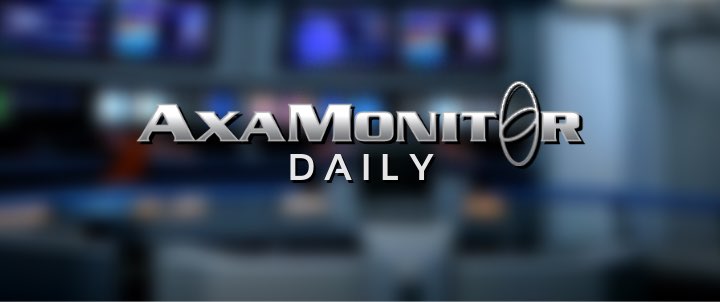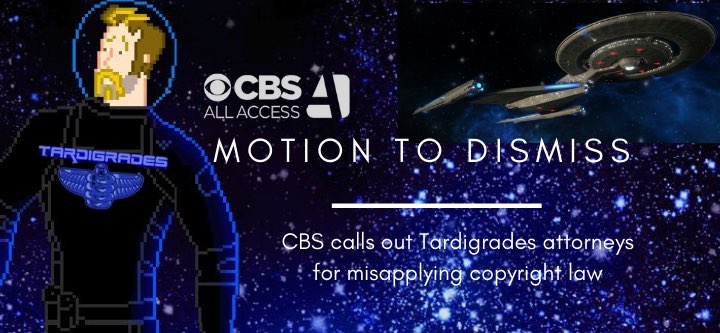CBS Attorney Slams Tardigrades' Lack of Legal Foundation
Judge now has all the pleadings to decide on motion to dismiss copyright case against Star Trek: Discovery
CBS and Netflix lawyers hit back at plaintiff Anas Abdin’s opposition to its motion to dismiss the copyright infringement lawsuit in which the game developer claims Star Trek: Discovery‘s concept was stolen from him.
Confusing the Law
 SIGN UP You can subscribe to AxaMonitor Daily to be the first to read news stories like this from AxaMonitor.
SIGN UP You can subscribe to AxaMonitor Daily to be the first to read news stories like this from AxaMonitor.
In the filing this week attorney Wook Hwang says Abdin misapplied copyright law in his opposition last week to dismissing the case.
- Virtual impossibility: The timeline proposed by Abdin for when Discovery‘s creators would’ve had to have stolen his ideas makes it “a virtual impossibility that Defendants would or could have scripted, produced, shot, edited and broadcast its allegedly infringing series in mere months after they immediately saw and resolved to copy this [Tardigrades] game teaser.”
- Nothing in common: Hwang says Discovery‘s tardigrade “has no features in common” with the elements of Abdin’s creature that are protected by copyright. What features they do share are based on actual tardigrades, none of which Abdin can claim as his own.
- Mischaracterizing Discovery : CBS says Abdin continues to inaccurately describe Discovery’s tardigrade in order to make it similar to the game’s version, primarily ignoring Star Trek’s creature is brown, not the blue depicted in the game.
- Purported characters’ similarities: Abdin’s pleading criticized CBS for dissecting his characters to their most generic components (e.g., “blond white male,” “African-American female,” “redhead” and “darker complexion” male) but Hwang notes those terms are the extent to which Abdin himself specifically described his own characters.
'Random and Trivial Side-by-side Similarities'
What random similarities Abdin offers “scattered throughout [Discovery and Tardigrades]” are too superficial to qualify for copyright protection, Hwang writes:
Courts have found certain similarities to exist [with] portions of an allegedly infringing work, but nonetheless held that substantial similarity did not exist because of overwhelming dissimilarities in the works when compared in ‘total concept and overall feel.’
Suing Netflix
Hwang similarly criticizes Abdin’s contention that Netflix is liable for copyright infringement simply for licensing Discovery from CBS.
- Predicate act: Abdin contends that Netflix accepting copies of Discovery‘s episodes is an act that makes it liable. Hwang says receiving such copies is not itself an infringing act, so Netflix shouldn’t be a defendant in this case.
No Attorneys Fees
CBS says Abdin’s attorneys profoundly misunderstand copyright law by continuing to claim they are eligibile for their fees to be paid out of damages, especially since they admit Abdin’s late copyright registration disqualifies him from seeking statutory damages. That same provision of copyright law also disqualifies attorneys from seeking fees as damages.
Bottom Line
U.S. District Judge Lorna G. Schofield now has all the arguments before her in order to decide whether to dismiss the case. She still awaits evidence from Abdin to support his claim Discovery‘s creators had accessed his work through the Steam game platform on which it was featured; that’s due March 19. Her ruling on dismissal likely follows that.


